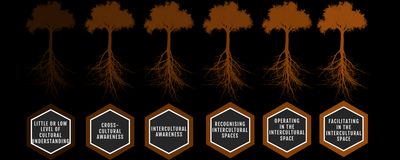Our Walk Together Ways are made up of 8 Guiding Principles which help guide participants and facilitator's actions to ensure that change processes are culturally responsive, 7 Monitoring Protocols to ensure that change is being implemented in ways that will achieve sustainable results overtime, and Mutual Ways which creates the conditions for shared authority, responsibility and agreement through the creation of an ‘in between world’, an intercultural space where neither group or culture dominates or controls the other.
8 Guiding Principles
Each community or entity entering a change process must be given the chance to understand the purpose and process of the desired change, and either elect to participate or decide what needs to change in order to want to participate.
Walk Together's definition of 'sustainable' in systemic change terms means the long-term maintenance of well-being across ecological, economic, political and cultural dimensions.
In the context of Walk Together, the principle of partnership means that individuals collaborate with a shared vision or purpose, always aiming for the common good. Trust is at the heart of partnerships, and Walk Together defines trust through a simple lens of the people we aim to serve: "I will trust you when I see evidence that you are acting in my best interests." Working in partnership and in the ways of partnership can help bring tangible steps into action and practice.
Learning by doing and observing, action learning and action research are powerful ways to enable collective change to happen. It is an important way to make knowledge and decision making more accessible for everyone involved.
The principle of ‘Two Way’ is how to agree on something that is useful and meaningful to culturally different participants in relation to a particular issue. Meaningful collaboration is unlikely unless participants share their cultural perspectives without judgement. Two Way does not happen if a participant is convinced of the superiority of his or her own culture, and isn't interested in the values, beliefs and ways of knowing and doing of others.
Monitoring and responding has three major aspects:
- Monitoring is observing how things are operating
- Reviewing is making decisions about what needs to change to improve operations.
- The goals of community-initiated projects must be relevant and understandable to all participants.
Governance is how a group, or community comes to make decisions about sustaining their well-being and progressively improving their capacity to do so. The Walk Together process consists of four interrelated aspects of governance:
- The way ways and rules are set and implemented.
- How decisions are made and implemented.
- The mechanism of upward influence to challenge, support or alter the decisions made within the representative governance structure.
- Consistent collaboration and joint monitoring of given areas or responsibility, processes and decisions.
In the context of Walk Together, accountability relates to authority. When people or groups have authority to make decisions, they can then share responisbility and are accountable for the effects of these agreed decisions by the people who gave them this authority.
MUTUAL WAYS - From problem solving to future forming

7 Monitoring Protocols
Begin with modest, manageable steps and gradually expand.
Start with the strengths. Work with strong, interested and committed people.
Start with things that are working.
Work at a speed and pace that keeps everyone involved, and leaves no one behind.
Have resources and commitment before you start.
Maintain trust and relationships by work with all people, all of the time.
Observe, Reflect, Monitor and Review from the outset, and all along the way.
Moving beyond cross-cultural towards intercultural Facilitation
